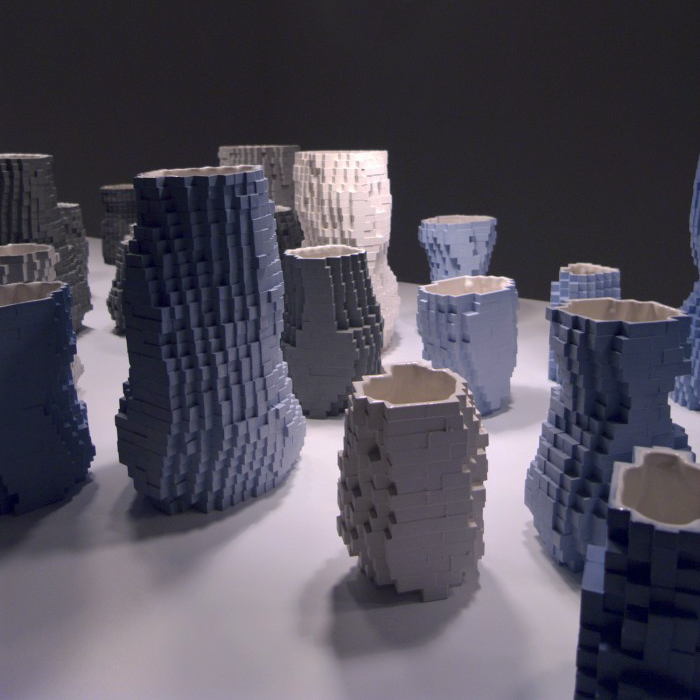Julian F. Bond is a London-based artist experimenting with production processes and consumer authorship in ceramic design. Originally created for his MA Product Design course at the Royal College of Arts, his Pixel Casting Machine uses an innovative slipcasting process to create a variety of functional designs. You can watch a video of the Pixel Casting Machine in action in this sister article.
Above Image: Julian F. Bond, Landscape, 2012.
For the past five years Bond has been refining and experimenting with the pixel casting process and the results stand on their own as successful, thoughtful design objects.
“Flower Stack [was] commissioned by Ping-Kern Ng following a conversation about flower pyramids produced by 17th century Dutch ceramic factories. These towers were pieces of grandeur, displaying individual tulip flowers in stacking ceramic pots that stood up to 160cm tall.”
DesignMarketo commissioned a set of dinnerware from Bond for a dinner event held in the Garden room at the Barbican Center. This series features open forms, exposing the soft-edged interior paired with the hard geometry of the exterior cubes. This series is one of Bond’s most successful using the Pixel Casting Machine.
Bond takes slipcasting, a regimented process used in production manufacturing, and makes it a highly creative process. Each object ends up being a unique design. The process can also allow consumers to become involved with the products they own. The Pixel Casting Machine experience is designed and packaged so that the layman can have creative influence on a product, something typically reserved for craftsmen with special knowledge and skills.
Justin Crowe is a Writer and Director of Operations at cfile.
What do you think of Julian F. Bond’s ceramic design? Tell us in the comments below!


















Add your valued opinion to this post.